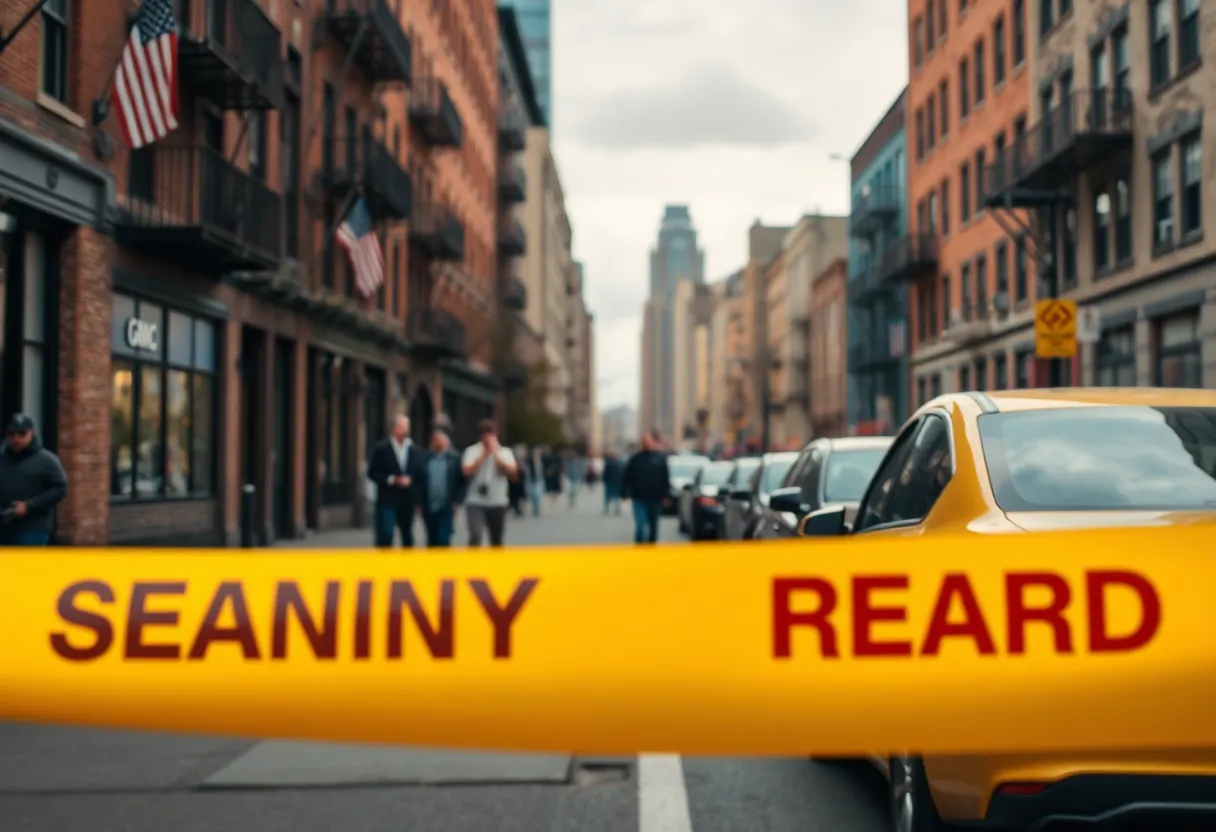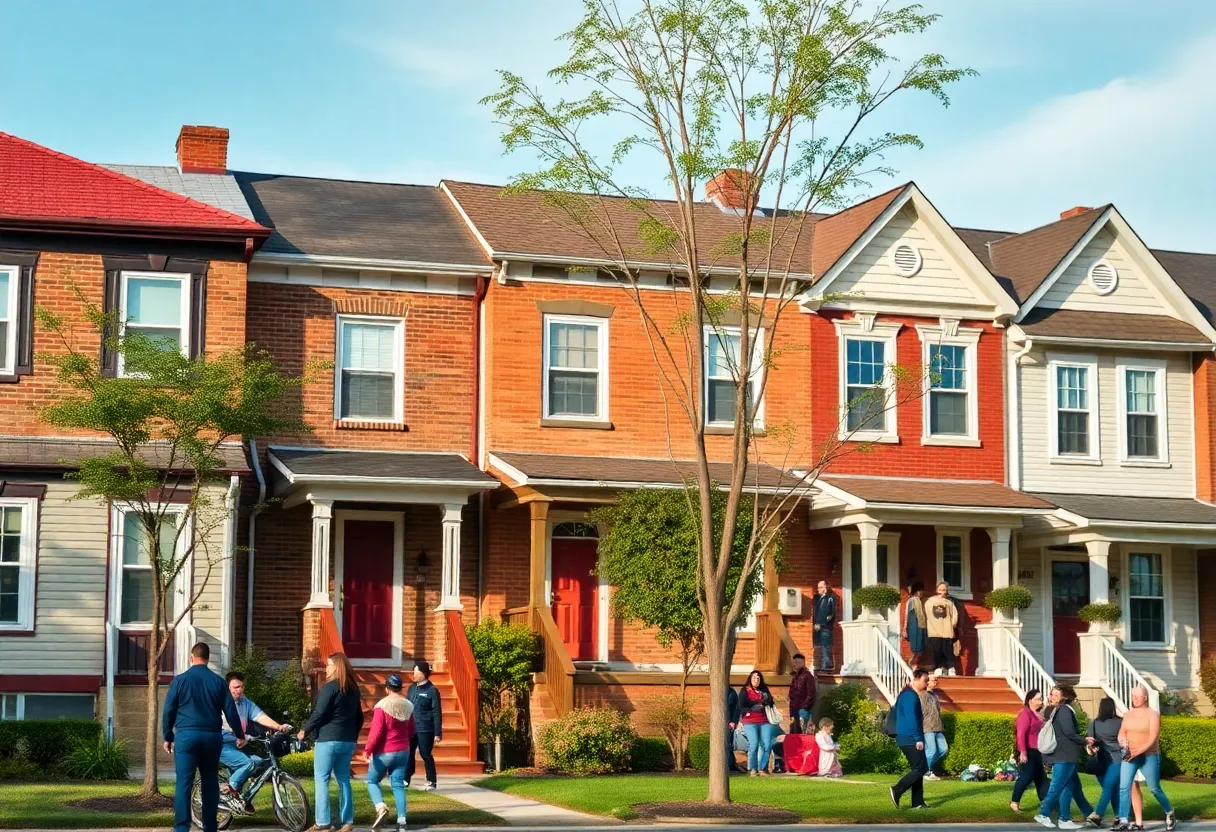News Summary
Baltimore is facing a contentious debate over President Trump’s proposal to deploy National Guard troops due to rising crime concerns. While some residents and business owners support the measure for enhanced security, city officials report crime rates are at their lowest in decades, prompting worries about exacerbating tensions within the community. As opinions clash, local leaders call for a focus on community-based solutions rather than federal intervention.
Baltimore Residents Divided Over Potential National Guard Deployment Amid Crime Concerns
Baltimore is in the spotlight as President Donald Trump has threatened to deploy National Guard troops to the city to address rising crime levels. The president has labeled Baltimore a “hellhole,” linking it to growing public safety concerns, igniting a heated debate among residents and officials about the necessity and implications of such a move.
Local business owner Terence Dickson supports the potential deployment, suggesting that the presence of National Guard troops could provide much-needed assistance to police and bolster the business environment. He cites personal experiences with break-ins and expresses that increased security could aid in combatting crime that has made many residents feel unsafe.
Despite the rising public concern about crime, Baltimore’s city officials have asserted that crime rates are on the decline. Baltimore Mayor Brandon Scott and Maryland Governor Wes Moore recently reported that violent crime is at its lowest level in 50 years, with a staggering 29.5% drop in homicides and a 21% decrease in nonfatal shootings compared to 2024. Yet, mixed reactions from residents suggest a divide in public sentiment regarding the president’s proposed National Guard deployment.
Some residents remain steadfast in their belief that the National Guard’s presence could exacerbate the situation rather than improve it. Resident Khalil Bishop raised concerns that deploying federal troops might incite violence while disproportionately affecting minority communities, recalling similar sentiments during the War on Drugs era. On the other hand, individuals like John Berardi, a victim of violent crime, support the deployment, stating that many residents are increasingly fearful of going outside after dark.
Longtime resident Annette Thomas expressed a nuanced view, suggesting that deploying the National Guard in specific high-crime areas could be beneficial, but a widespread presence throughout the city would not be appropriate. Meanwhile, community organizer Elijah Miles advocates for the protection of Black and Brown communities, arguing that federal troops would hinder progress and calling for increased funding for local violence prevention programs instead.
Amidst these varied opinions, Congressman Kweisi Mfume and County Executive Johnny Olszewski have urged President Trump to reconsider the deployment of the National Guard, pointing to effective local initiatives and continued reductions in crime statistics. Mayor Scott and Governor Moore reiterated their commitment to local solutions, emphasizing that they have already implemented policies that effectively address crime in Baltimore without the need for federal intervention.
2025 has seen Baltimore record 91 homicides and 218 nonfatal shootings, numbers that remain historically low within the city. This decline in crime rates has encouraged some residents to argue that Baltimore can address its issues independently without federal assistance. Trust in law enforcement remains a contentious topic, with many residents expressing skepticism regarding police actions and the potential increase in surveillance that could accompany a National Guard presence.
Concerns over privacy have also been raised, with residents drawing parallels to personal experiences of federal presence in Washington, D.C. A sentiment gathers that the federal intervention may not align with local interests or governance, urging residents to rely on community-based strategies to strengthen public safety.
As the city grapples with the implications of a potential National Guard deployment, Baltimore remains a microcosm of the national debate over crime, safety, and federal versus local governance. The city’s residents continue to navigate their feelings of fear, safety, and trust, leaving discussions around crime and community protection far from settled.
Deeper Dive: News & Info About This Topic
HERE Resources
Early Morning Fire Devastates Commercial Laundry in Baltimore
Three-Alarm Fire Erupts at Northwest Baltimore Laundry
Maryland Cycling Classic Set to Disrupt Baltimore in September
Maryland Cycling Classic Returns to Baltimore in 2025
Tragic Shooting in West Baltimore Claims Young Life
Baltimore Braces for Major Traffic Disruptions This Saturday
Three-Alarm Fire Breaks Out in Baltimore Laundry Business
Uvalde School District’s Safety Failures Before Tragedy
Challenging Times Ahead for Construction Industry
Baltimore Welcomes New Shareholder to Shulman Rogers
Additional Resources
- CBS News
- Washington Post
- Fox Baltimore
- Forbes
- Baltimore Sun
- Wikipedia: Baltimore
- Google Search: National Guard deployment Baltimore crime
- Google Scholar: Baltimore crime statistics
- Encyclopedia Britannica: Baltimore
- Google News: Baltimore National Guard

Author: STAFF HERE BALTIMORE WRITER
The BALTIMORE STAFF WRITER represents the experienced team at HEREBaltimore.com, your go-to source for actionable local news and information in Baltimore, Baltimore County, and beyond. Specializing in "news you can use," we cover essential topics like product reviews for personal and business needs, local business directories, politics, real estate trends, neighborhood insights, and state news affecting the area—with deep expertise drawn from years of dedicated reporting and strong community input, including local press releases and business updates. We deliver top reporting on high-value events such as the Baltimore Book Festival, Preakness Stakes, and Artscape. Our coverage extends to key organizations like the Baltimore Chamber of Commerce and Visit Baltimore, plus leading businesses in shipping and healthcare that power the local economy such as the Port of Baltimore and Johns Hopkins Medicine. As part of the broader HERE network, we provide comprehensive, credible insights into Maryland's dynamic landscape.





